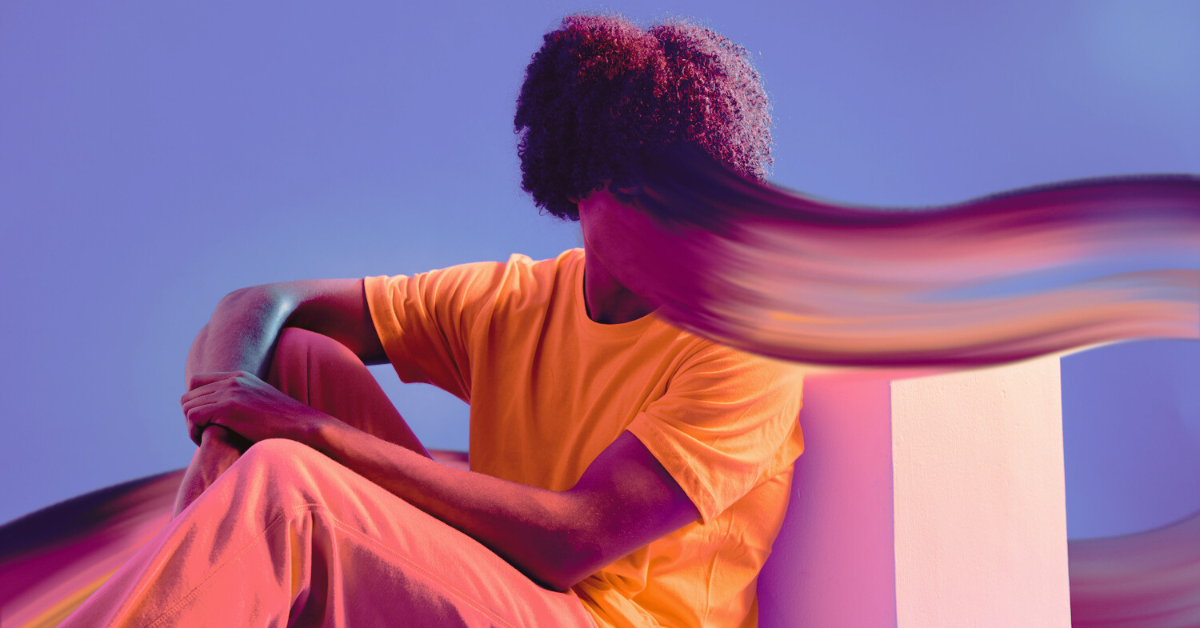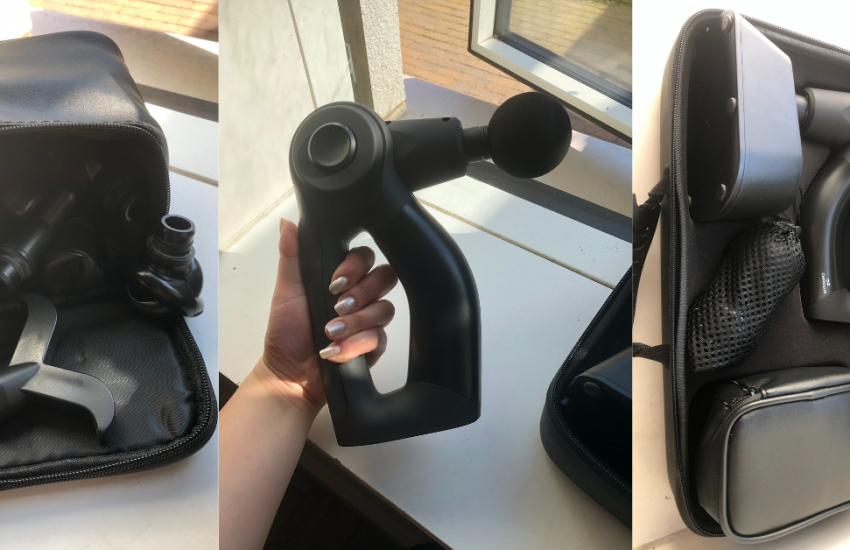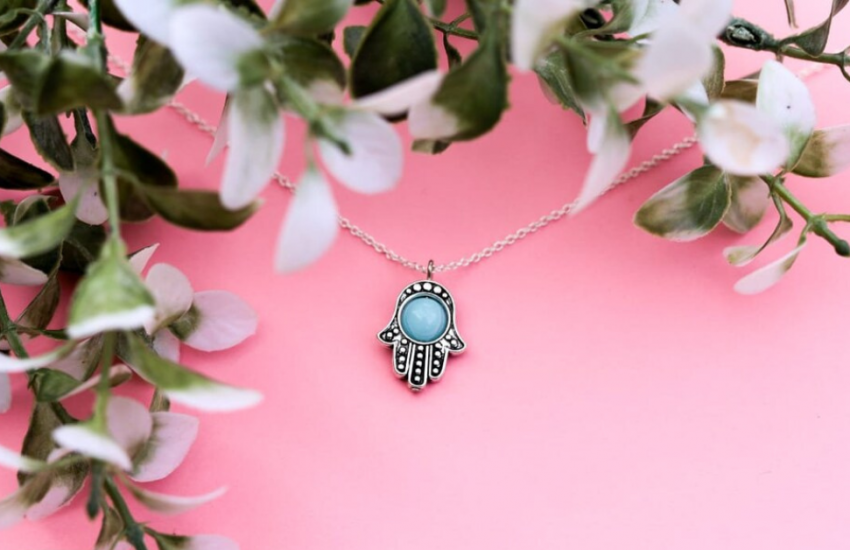6 Little-known Signs of Anxiety You Should Know About
Whether you have anxiety or are unsure, what little-known signs of anxiety should you know about?
I bet you can think of a few obvious signs of anxiety, like sweaty hands and feeling uneasy about the unknown. But what about ones so covert even Sherlock would struggle to spot them?
Once you are able to spot your signs of anxiety, it will be easier to identify the underlying emotional causes.
Further, once you become consciously aware of them and what fuels them, you can find ways to rid anxiety from your life altogether, or atleast become better at managing the anxiety that’s holding you back in life.
It’s important to keep in mind millions of people experience anxiety, and in their own way. But only you can face the feelings and triggers of your anxiety and take them head on (kindly, of course).
What is anxiety?
Mental health charity, Mind, describes anxiety as:
“...anxiety feels as if everyone in the world is waiting for me to trip up, so that they can laugh at me. It makes me feel nervous and unsure whether the next step I take is the best way forward.”
Does this sound familiar to you?
It’s the type of feeling you get when you’re unsure what will happen, what people are thinking, or if you’re doing something wrong. Or at least those are the types of thoughts anxiety makes you believe are true. It’s all a cloak, really.
“Don’t believe your anxiety, it’s a liar determined to tell you you’re not capable”
– Anrika, Calm Courage
The cloaks are usually fear, dread, and worry that combine to give you an overall feeling of anxiety.
It’s ultimately a sense of uncontrollability. Uneasiness. Uncertainty. And many other pleasant “un” words like unmotivated. And those internal feelings can often be accompanied with external symptoms such as headaches, a racing heart and brain fog, to name but a few.
Nonetheless, when you think about it, we only have control over certain aspects of our lives. Namely, what we think and how we act. Everything else is a what if.
That’s why anxiety can be detrimental to our mental health. Feelings such as fear, dread and worry are pretenses that act as barriers between what we want to do and what we actually do. Anxiety gets in the way of life’s natural flow.
Some find the lack of knowing what is to come to be exhilarating. Adrenaline junkies and impulsive individuals, for example. Whilst others struggle with the intense, anxious feelings associated with not knowing. Really, to be somewhere in between is opportune. But it’s the latter for so many people.
28.1% of respondents to a Statistica survey reported having symptoms of anxiety disorder on April 10th, 2023.
What causes anxiety?
Fight-or-flight is your nervous system’s automatic response when anxious or stressed.
Our ancestors found the fight-or-flight response instrumental when woolly mammoths and enemy tribes were on the attack. However, nowadays―as you can imagine―it’s not so advantageous.
When you experience severe anxiety symptoms it can feel as if someone, or even the world in general, is out to get you (I promise that isn’t true, unless, you know, you’re a murderer on the run)
Signs of anxiety attack to look out for?
Signs of anxiety attack:
- A sense of impending danger or panic
- Increased heart rate
- Sweating
- Shaking
- Feeling weak or dizzy
- Inability to think clearly
There are many reasons why someone experiences anxiety attacks. Most commonly, anxiety attacks are caused by stress or trauma over an extensive period.
As an HSP (Highly Sensitive Person) and INFJ (introvert), I experienced anxiety attacks in an unhealthy workplace (think narcissism and bullying, and constant expectations *sigh). So I understand how distressing they can be and can relate if you’ve ever experienced them.
Luckily, I don’t work there anymore. I rarely experience anxiety attacks now. However, it took me a couple of years to recover emotionally and mentally. I later discovered I was stuck in fight or flight mode and had a GAD.
What is GAD?
The NHS describes GAD as:
“a long-term condition that causes you to feel anxious about a range of situations and issues, rather than 1 specific event. People with GAD feel anxious most days and often struggle to remember the last time they felt relaxed”
GAD is common among people with post-traumatic stress syndrome (such as from childhood emotional or physical abuse), neurohormonal imbalances, or head injuries.
In addition, an anxiety disorder can develop when an individual stays in the fight-or-flight state for too long.
But apart from these, the likelihood of developing a GAD can come down to genetics (thanks mum and dad) or a mental health disorder such as autism, or other forms of neurodivergence.
What personality traits are more prone to experience anxiety symptoms?
Introversion
Introverts are introspective and creative. They prefer alone time over socialising because they can be socially anxious, and like to re-energise alone.
This doesn’t mean extroverts are immune to anxiety, they are simply less genetically predisposed to anxiety than introverts.
Empathy
Empathy is a valuable trait that allows someone to tune into the thoughts and feelings of another person to understand their point of view. Those with strong levels of empathy (also known as empaths) make great listeners, caregivers, and marketers. However, too much empathy can lead to anxiously overthinking what others are thinking and feeling.
Over-thinking
Both introverts and empaths fall into the ‘over-thinker category’. Generally, an over-thinker has a vivid inner world, often digressing in self-talk (often negative self-talk).
Perfectionism
Perfectionists hold themselves to unrealistic standards. There’s constant pressure to reach their chosen image of perfection which is usually influenced by parental or societal expectations.
As you can see, anxiety varies significantly from individual to individual and is influenced by personality traits and genetics. No wonder some signs of anxiety are often overlooked.

Let’s explore little-known signs of anxiety. Do any of these hit close to home?
1. Zoning out / day-dreaming
Ever get lost in thought? For example, you become distracted by physical symptoms of anxiety, such as sweating and a racing heart, or overthinking a future scenario, that you find it hard to focus on what you’re doing. You may even forget where you are.
People with social anxiety tend to zone out often out of fear of embarrassing themselves or saying the wrong thing.
2. Obsession with the ‘new thing’
I’m not talking about a high school crush (that’s something different).
It could be a new show (I had an obsession with the TV show True Blood in my teens—yep, vampires were exciting to me and still kinda are).
It can also be a habit, such as buying the same coffee every day because it brings a sense of security and control.
It’s ultimately an infatuation with something new and exhilarating that’s used to distract from or dismiss anxiety.
3. Talking to yourself in public
Talking to yourself is also a sign of anxiety and is a coping mechanism.
When you’re out in public and feel anxious, mumbling to yourself can be a source of comfort. You feel more supported. Especially if you are alone.
It can also be a sign of social or situational anxiety, whereby you don’t want to talk to anyone so instead talk to yourself.
I’m not going to lie, talking to yourself in public may make you look a bit looney. Nonetheless, it’s normal for a proportion of people with anxiety, and some do it subconsciously or as a way to remember things even without anxiety.
According to WebMD, 25% of adults say they talk to themselves in everyday situations.
4. Constantly replaying past situations and conversations
Ever find yourself replaying things in your mind? Asking, ‘Why did I say that?’, ‘Why did they do that?’, or even, ‘What would have happened if I said this’?
It’s super normal for anxious over-thinkers to do this.
For example, after an interview, you replay conversations in your mind to the point you create mini-movies with out-there plot twists. This is anxiety of the past rather than typical anxiety that fixates on the unpredictability of the future.
When thoughts are dark in nature or trigger sadness, it’s known as rumination.
Essentially, it’s wanting things to have happened a certain way which would have led to a better outcome. Perhaps there was more laughing. More praise. Less awkward moments, etc. It’s fueled by expectations.
5. Not sharing your opinion
When someone asks you a question, do you often doubt whether what you’ll say is worth sharing?
Instead of remembering everyone can add value to a conversation, you hold back. You minimise your opinion or avoid saying it altogether. Instead, switch to agreeing mode aka people-pleasing.
Many with anxiety people-please. Most of the time, unintentionally. It’s second nature. It seems easier to agree and be submissive than assertive.
Because, when you speak your mind and assert yourself, you can encounter new opinions. When in a super-alert state of anxiety, this can spark a sense of conflict. So better to avoid any form of conflict altogether.
6. Hyper-awareness of self
Hyper-awareness is an aspect of hypervigilance. What is hypervigilance, you ask?
Hypervigilance is commonly caused by anxiety. Those with a GAD can be hypervigilant in new environments and situations. Those with social anxiety, in the presence of new people (or even people they know).
When in a hypervigilant state, you experience the typical signs of anxiety, such as sweating and a racing heart. However, you also become more sensitive to and easily overwhelmed by your surroundings.
So, you can see why it would also be easy to sensitise yourself to your movements, words and actions. You over-analyse every step you take and every move you make (excuse The Police reference—if you’re old enough to know it).
This experience can be extremely upsetting. I know this because I experienced hyper-awareness while working at the toxic workplace I mentioned earlier.
Overridingly, it was a feeling someone was always looking at me, and the fear I was doing something wrong.
Only was I able to cope with my hyper-awareness and anxiety when I started to adopt anxiety-soothing techniques. Let’s explore some of those now.
How to relieve anxiety
Meditation
I recently published a blog all about meditation for stress and anxiety relief. You can read it here. It’s my go-to practice for a busy mind and helps me to identify thought patterns and behaviours so I can slowly and surely get better at managing my anxiety.
It’s important to remember many people are more predisposed to anxiety, which can mean anxiety can rear its ugly head over a lifetime. But that doesn’t mean the symptoms of anxiety cannot improve over time.
Mindfulness
Mindfulness is an aspect of meditation that is typically practised on-the-go rather than at a specific time.
Why mindfulness for anxiety?
Mindfulness promotes active awareness of the present moment. Thus, it’s not so easy to get zapped into overthinking. Negative thoughts about the past and future happen less frequently.
You can therefore slow down and focus more on doing your best in the present moment.
Increase your knowledge
There are many fantastic books to help you learn more about anxiety. Inevitably, to help you get to grips with your personal anxiety symptoms and adopt new techniques and perspectives to counter them.
“12 Rules of Life – An Antidote to Chaos” by Jordan Peterson has a highly-realistic description of anxiety in Chapter 1 and mentions ways to cope with anxiety and stress in simple yet powerful ways throughout.
I’ll be releasing my review of Peterson’s book very soon. If you’d like to be updated by email, please subscribe to my newsletter at the bottom of this page. Alternatively, follow me on social media (links are below).
Consider therapy
Sometimes only talking to a professional helps. In particular, if your anxiety affects your normal activities and prevents you from finding any kind of joy in your day (depression).
The first step would be to see your GP/doctor unless private therapy is an option for you.
Join communities on social media
There are many people experiencing different degrees of anxiety. From a bit of fear here and there to full-blown anxiety attacks daily.
For relatable content on anxiety and personal and spiritual growth, please follow me on socials.
Please remember that anxiety is common. The worst thing you can do is ignore your anxiety symptoms to the point they worsen and hold you back in life. It’s never too late to start managing your anxiety to promote more peace in your life.
Have you ever considered using a massage gun to ease the physical symptoms of anxiety and stress? Find out why you should and the best buys, here.


